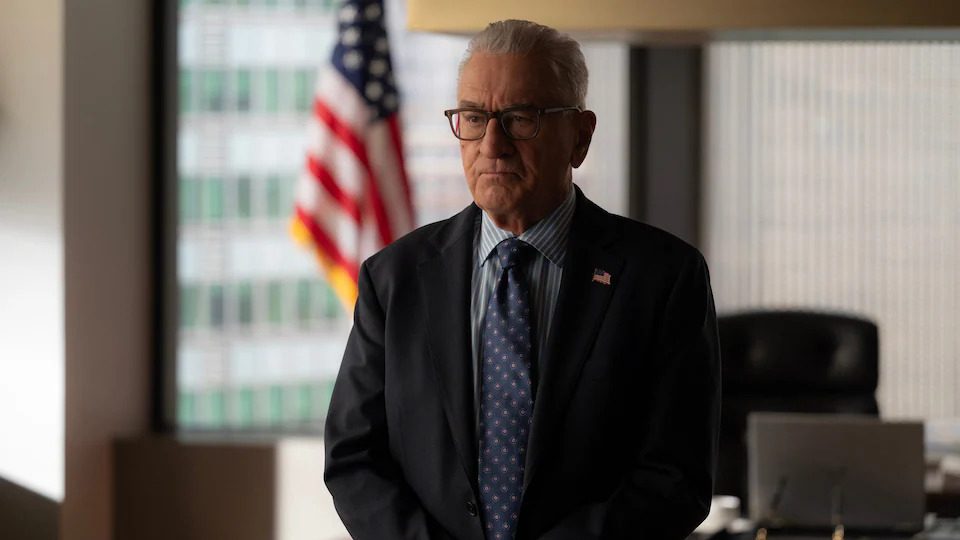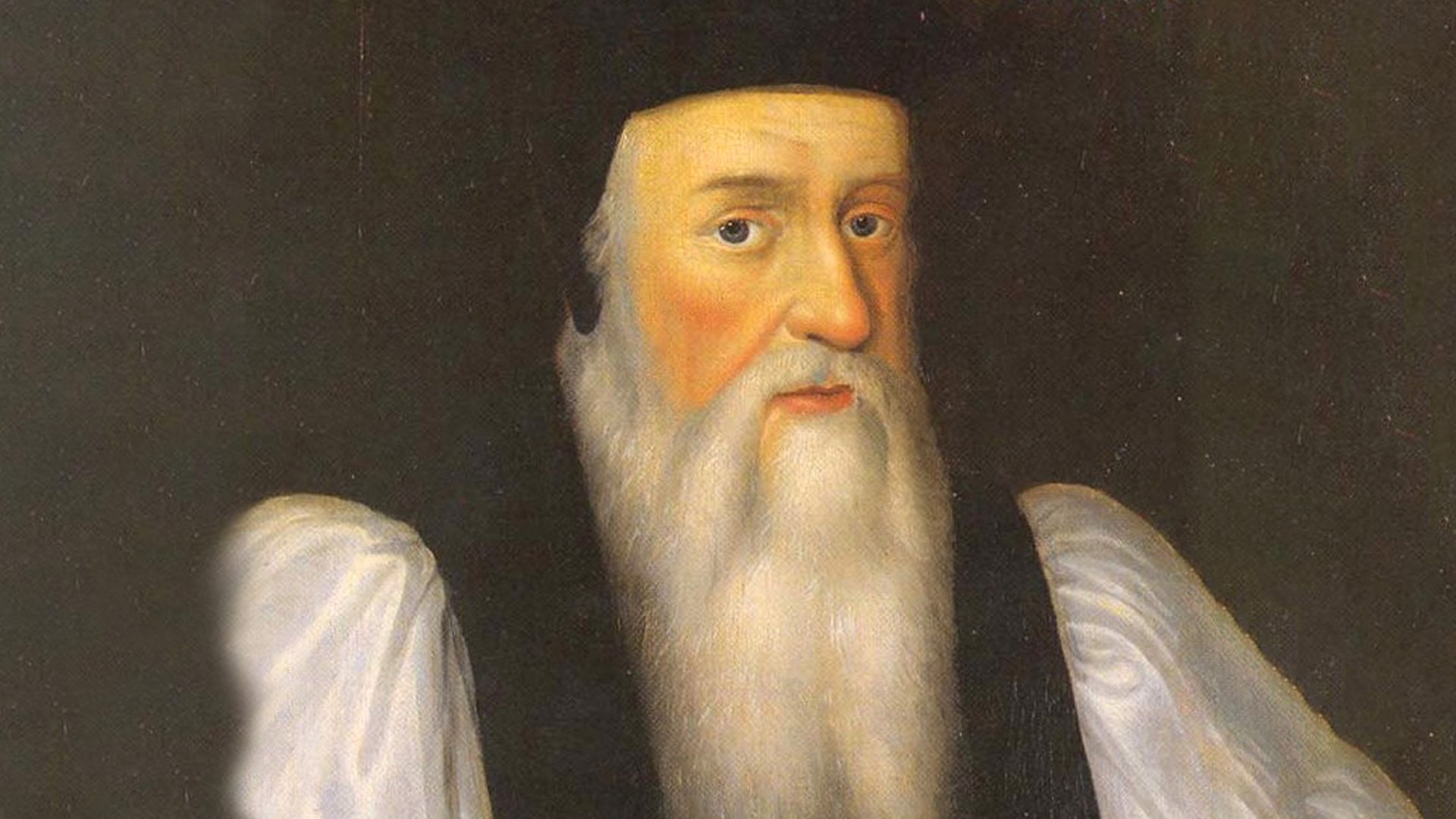Zero Day (Netflix)
When ex-Google chief Eric Schmidt warned recently of the “Osama bin Laden scenario” – what if cutting-edge digital technology fell into the hands of terrorists? – he might have been setting the scene for this excellent six-part thriller.
In his first regular television role, Robert De Niro plays former US president George Mullen, called back to head an emergency government commission after the American internet is turned off for a full minute – causing thousands of fatalities. A message flashes on the screen of every phone, warning that “this will happen again”.
Who is behind the cyberattack? Naturally, the generals think it’s the Kremlin (this is not Donald Trump’s America – the Russians are still the bad guys in Netflixland) and want President Evelyn Mitchell (Angela Bassett) to authorise a retaliatory strike. But what if it’s home-grown terrorists? And what exactly is CIA director Lasch (Bill Camp) up to?
Jesse Plemons plays Mullen’s former sidekick Roger Carlson, who may not be all he seems. To complicate matters further, his daughter Alexandra (Lizzy Caplan) is a congresswoman, appointed to the committee that oversees her father’s investigatory commission – notionally to ensure that it does not abuse its far-reaching emergency powers.
Though the ex-president is trusted implicitly by the American people, he too has a secret that seriously imperils his capacity to do the job – but I won’t spoil that. Suffice to say that De Niro gets to use his full range of facial expressions, from dangerously irritated to somewhat confused.
Zero Day is as much a loving homage to 1970s espionage classics such as The Parallax View (1974) and Three Days of the Condor (1975) as it is a pacey riff on hypermodern cyberwarfare. Extremely entertaining.
I’m Still Here (selected cinemas)
The cunning of tyranny is to be absent – or apparently so – from everyday life for much of the time. In 1970, Eunice and Rubens Paiva live with their five children by Leblon Beach in Rio de Janeiro, soaking up the sun, playing volleyball, hosting parties for their friends, cheerfully busy with a boisterous family life.
At the borders of his happy tableau, however, is the darkness of Brazil’s military dictatorship. When a group of heavies in plain clothes – army? police? – arrives to arrest Rubens (Selton Mello), a former congressman recently returned from political exile, there is no violence or uproar, and Eunice (Fernanda Torres) asks if they have had anything for lunch.
Soon after, Eunice and Eliana (Luiza Kosovski), her second oldest child, are also taken into custody: hooded in the car so they cannot see where they are going. Day after day, Eunice is held without explanation in a grubby cell, and shown photographs of suspected militants by her interrogators.
When she and Eliana are released, but Rubens is not, she grasps immediately that her role in life has been transformed utterly and that she must not only seek justice for her husband but hold her family together in desperate circumstances. Torres gives a stunning performance as a woman who is consumed by dread but must marshal all her energies and remain stoic for the sake of her children and her own sanity.
Based on a 2015 memoir by the Paivas’ son Marcelo – played here as a boy by Guilherme Silveira – Walter Salles’s enthralling movie is much more than a pointed exploration of autocracy and its machinations (though it is certainly that). I’m Still Here is also a profoundly personal account of the ways in which ordinary people respond to the traumatic intrusions of history and fight to protect those they love. Torres would be a worthy winner of the Best Actress Oscar for which she has been nominated. A must see.
Richard II (Bridge Theatre, London, booking until May 10)
Shakespeare’s meditation on the divine right of kings and its abuse is one of the most cerebral of the history plays: in the words of the literary scholar Jonathan Bate, “an extraordinary study in what happens to a king after he has abdicated one of his bodies [the political, as opposed to the natural]”.
Though best known as Anthony in Bridgerton, Jonathan Bailey is a seasoned stage actor and brings class and imagination to the lead role in Nicholas Hytner’s sharply observed and kinetic production. Snorting coke and lolling on John of Gaunt’s deathbed, his Richard is an archly capricious figure – making his moments of reflection all the more powerful. He head-butts a mirror, dramatizing the fragmentation of his soul.
Also excellent is Royce Pierreson as Henry Bullingbrook, Duke of Hereford, oscillating between fierce ambition and conflicted self-awareness. Even as the crown is offered to him, he hesitates just long enough to signal his recognition that the rewards of usurpation are ambiguous.
Hytner never lets us forget that – for all the characters’ cogitation upon the nature of kingship, law and nationhood – this is a drama about raw power: when Richard takes refuge on the balcony, a heavy field gun is rolled out and aimed at him. Grant Olding’s music would not be out of place in a thriller. After the long and triumphant run of Guys & Dolls, the Bridge remains the best theatre in town,
A Thousand Blows (Paramount+)
London, the 1880s: Hezekiah Moscow (Malachi Kirby) and Alec Munroe (Francis Lovehall) arrive from Kingston, Jamaica, eager to make their fortunes. Hezekiah aspires to be a lion tamer but is soon plunged into the world of bare-knuckle fighting at the infamous Blue Coat Boy pub in Wapping.
William “Punch” Lewis (Daniel Mays) may be the landlord and master of ceremonies, but this boozer is definitely the realm of the Goodson brothers: Treacle (James Nelson-Joyce) and Sugar (Stephen Graham, whose physique has been transformed for his pugilistic role). Hezekiah’s talent in the ring is an intolerable provocation for Sugar: “It’s like looking in a mirror – and there can’t be two of us”.
The pub is also a gathering point for the all-female gang of thieves, the Forty Elephants – headed by Mary Carr (the fantastic Erin Doherty). Though she has been close to Sugar since her days in the workhouse, Mary has her sights set on cracking the opportunities presented by the new “Queensberry rules” fights at the West London Boxing Club promoted by the Earl of Lonsdale (Adam Nagaitis). She is also planning a daring heist, as a grand Chinese delegation arrives in the city.
As one would expect from Steven Knight, the creator of Peaky Blinders, A Thousand Blows bristles with authentic period detail and boasts historians David Olusoga and Hallie Rubenhold as consultants. It also strikes a deft balance between brutal action in the ring and the complex emotions that crackle between the principal characters. The first six episodes are terrific, with the promise of more to come.
Cross Purposes: Christianity’s Broken Bargain with Democracy by Jonathan Rauch (Yale University Press)
For anyone interested in the intersections of culture, politics and belief, the publication of a new book by Jonathan Rauch is always something to be savoured.
As long ago as 1993, in Kindly Inquisitors, he warned of the soft authoritarianism that would go on to grip so many liberal institutions under the banner of “social justice”. In The Constitution of Knowledge (2021), he provided a definitive account of “cancel culture” and what distinguishes it from legitimate criticism.
Now, the Brookings Institution scholar trains his sight on Christianity’s role in American society: a choice of subject that is all the more intriguing as he is Jewish and an atheist. In Rauch’s account, the founding fathers, and especially James Madison, believed that the constitution would only thrive in a context of flourishing civic republicanism: a cultural setting that was both pluralist and religious in character.
Now, he continues, the role of religion as “a load-bearing wall” has been undermined by the rise of what he calls “Sharp Christianity” – “a divisive, fearful, partisan, and un-Christlike version of Christianity with dangerously illiberal implications”. This evangelical nationalism is, of course, intimately entangled with the return of Donald Trump, who, since surviving two assassination attempts, has explicitly presented himself as divinely chosen to govern.
“I did not appreciate the implicit bargain between American democracy and American Christianity,” Rauch writes of his long commitment to secularism – calling upon believers to restore the tolerant, forgiving and gentler version of their faith. Unexpectedly, he finds much to admire in the adaptations to the needs of modern liberal democracy made by the Church of Jesus Christ of Latter-day Saints.
Intrinsically fascinating in its analysis of the most powerful nation on earth, Rauch’s concise book also has lessons for other societies where religion is less dominant in political life. In the modern digital Babel, as trust in traditional institutions plummets, everyone is seeking meaning, and will find it somewhere: in conspiracy theories, wokeness, SoulCycle, nativism, New Age cults and all the other tribes that offer some sort of navigation system. That alone should be enough to focus the reader’s mind.




